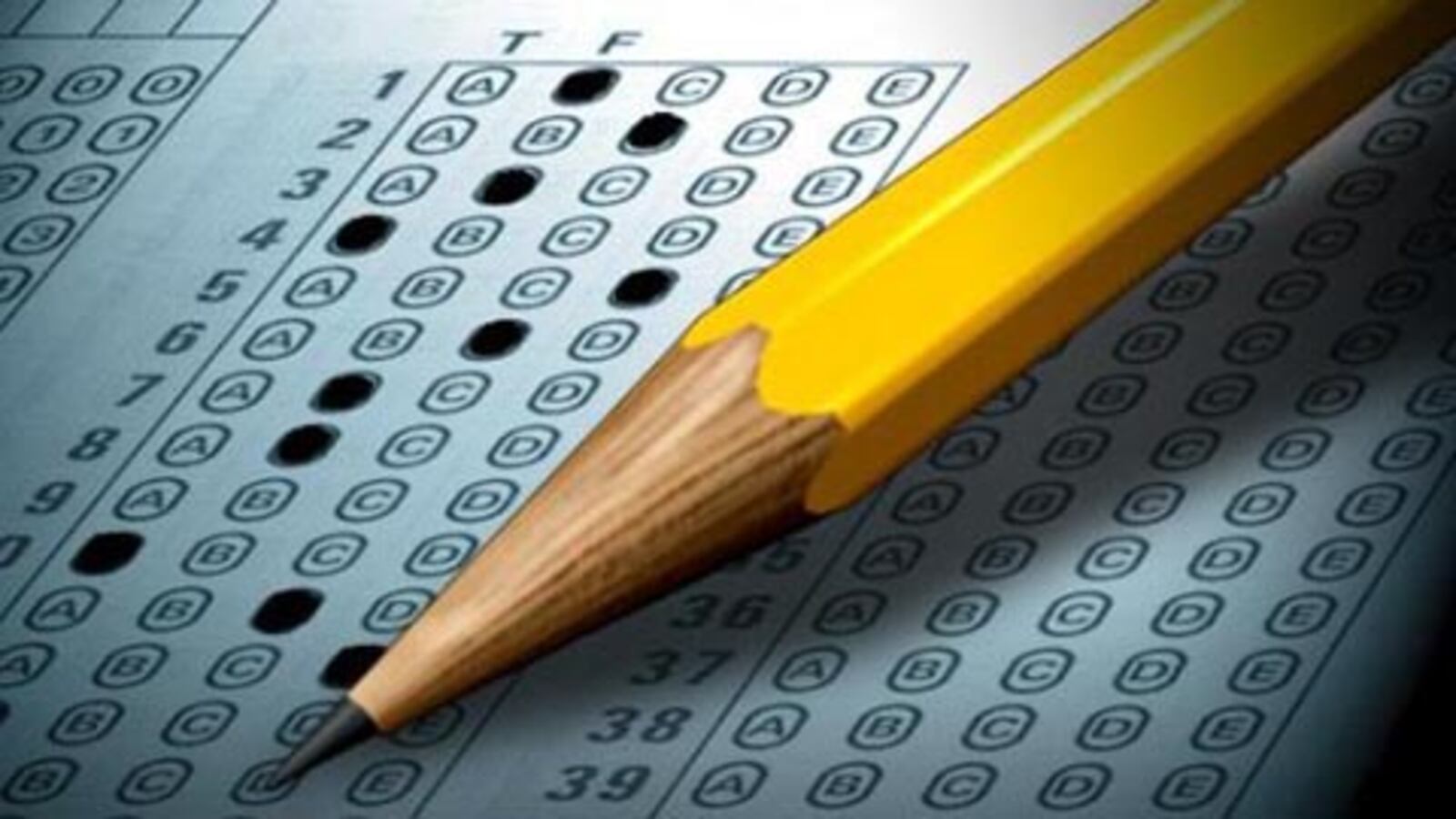Coloradans are concerned about the amount of testing in the state’s schools, according to a poll commissioned by the Colorado Education Association, the state’s largest teachers union.
“The survey confirms the actual experience parents and teachers are having all over Colorado – there is simply too much testing and not enough funding,” said CEA President Kerrie Dallman. The CEA supports trimming back the state’s testing system.
Here are some key results from the poll:
- Level of testing: Less testing was supported by 63 percent, same amount 28 percent, more 5 percent.
- Primary purpose of testing: Assessing student progress was listed by58 percent, assessing of district and school performance 24 percent, assessing teacher effectiveness 13 percent.
- Effectiveness of testing in measuring student progress: Somewhat effective 52 percent, not effective 34 percent, strongly effective 11 percent.
- Appropriate amount of class time on testing: 0-10 percent – 45 percent of respondents, 10-20 percent – 38 percent, 20-30 percent – 12 percent, more than 30 percent – 2 percent.
- Parental opt out: Under special circumstances 43 percent support this, never 28 percent, support for any reason 25 percent.
Asked how familiar they were with the standardized tests in their school districts, 34 percent of respondents said they were very familiar, 45 percent somewhat familiar and 21 not very familiar.
On the question of how many standardized tests their children take each year, 50 percent of parent respondents said two to five and 10 percent said six to 10. Asked if they felt their children were adequately supported by technology in their schools, 71 percent said yes and 20 percent said no.
Other issues
The CEA’s poll also asked respondents to choose the “top problem” facing education and about their opinions on the Common Core State Standards.
Some 29 percent identified school funding as the single most important problem facing public schools, with standardized testing and parental involvement tied at 13 percent for the next most-cited problem. Teachers unions and administrators each were mentioned as the top problem by 12 percent each.
On Common Core, 32 percent of respondents supported the language arts and math standards, 34 percent opposed them and 34 percent weren’t sure of their opinions. The survey also asked respondents if they were aware of the state’s Colorado-only standards in other subjects – 59 percent didn’t know about them.
The poll surveyed 706 adults, including 600 registered voters and 219 parents of school-aged children. Interviews were done Sept. 12-16, primarily by telephone. The poll was done by SurveyUSA. See questions, demographic tabulations and full results here.
Testing task force chips away at issues
Monday also was the fourth meeting of the Standards and Assessments Task Force, a 15-member appointed group that is studying state and local testing systems and that is supposed to make recommendations to the 2015 legislative session.
Up to now the group has been heavily involved in information-gathering and organizational issues, and it has only three more meetings scheduled before it’s supposed to complete its report.
The task force represents a broad spectrum of education interests, from cut-it-back parent representatives to education reform group leaders who want to preserve key elements of the current system. Some of those divisions started to surface during discussion at the group’s September meeting (see story).
One exercise the task force did on Monday was to start narrowing down issues it wants to research and discuss further. Those issues include:
- Shortening the time taken by tests
- Cutting back state testing to the minimums required by the federal government
- Aligning and combining local, state and federally required tests
- Excusing students who are performing at top levels from testing
- Allowing districts to continue giving paper-and-pencil tests
- Letting districts choose from a state-approved menu of tests
- Delaying the use of results from new tests for accountability and educator evaluationuntil those tests have been fully validated
- Changing the timing of the new science and social studies tests to reduce the crush of testing every spring
The group also was briefed on a recent memo from the U.S. Department of Education that detailed the fairly limited options that state has in changing the testing system. (See this story for background.) But that report prompted little significant discussion.
On Monday evening four members of the task force held the first in series of public meetings on testing. About two-dozen people showed up at Denver’s North High School, some raising familiar concerns about testing distracting from classroom instruction, the costs of testing and infringements on state and district autonomy.
The task force plans a series of such meetings around the state – see the schedule here.


